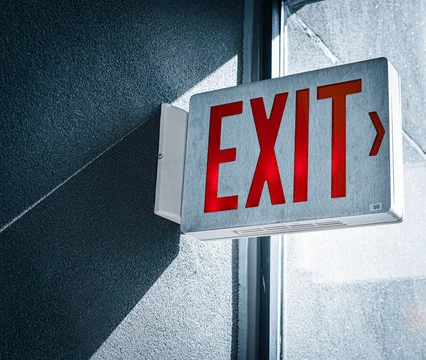We lawyers move things around all the time. Some due date or another falls on a vacation, an expert gets sick, a bunch of files won't load -- a thousand different minor catastrophes can occur. In Delaware, the result is almost invariably a stipulation to move the relevant dates.

Typically for little interim deadlines, the Court will grant the stipulation as a matter of course. Deadlines a little closer to trial are a bit trickier. Judge Connolly, for instance, notes in his form scheduling order that "Should the parties later stipulate or otherwise request to have the [SJ and Daubert] reply brief deadline extended, the parties will lose their trial date upon the Court's granting the extension, and no new trial date will be given until the dispositive motion(s) has (have) been decided."
In these instances, you sometimes see the parties file a conditional stipulation which moves out various dispositive motion dates, but only if it would not result in the loss of a trial date.
That seems to have been the idea in Qfix Systems, LLC et al v. Klarity Medical Products, LLC, C.A. No. 23-77-CJB, D.I. 145 (D. DEL. Dec. 6, 2024) (Oral Order). That case was before Judge Burke whose form order does not explicitly state that the parties will lose their trial date if they move the SJ briefing. The form order does, however, direct the parties to choose an SJ hearing date approximately 2-3 months before the pretrial conference.
The parties there filed a fairly detailed stipulation asking to extend the expert discovery period and various following deadlines up to the SJ hearing by 2-3 weeks, while keeping the same trial date. The stipulation included the following clause:
WHEREAS, the parties do not agree to any extension that, unlike the short extension requested herein, would require moving the trial set to begin on May 27, 2025, and the parties respectfully request that that the Court not change that trial date;
Id., D.I. 260.
Nevertheless, Judge Burke granted the requested extension of deadlines, but did move the trial date:
The Court, having reviewed the parties’ proposed stipulation, (D.I. 260 ), hereby ORDERS that it is REJECTED. The Court will alter and extend the deadlines for completion of expert discovery and the filing of summary judgment and Daubert motions, as the parties request. But doing so will unduly reduce the time the Court has to review and resolve those motions prior to the pretrial conference, and so the remaining dates in the schedule will need to be pushed back as well. Therefore the currently-operative dates in the Scheduling Order, including the dates for the pretrial conference and trial, are VACATED. By no later than December 12, 2024, the parties shall provide the Court with a joint letter that sets out all of the two-week periods that they are jointly available for trial from June 2025 through March 2026. The Court will then pick a new pretrial conference date and new dates for trial—and thereafter the parties can fill in other dates that work for them for the remainder of the operative schedule leading up to the pretrial conference (leaving at least four months between the date of filing case dispositive and Daubert motions and the date of the pretrial conference).
Id.
The three main things I take away from this are:
- You've got to be careful in wording your stipulation. The parties here stopped sort of saying they would withdraw the stipulation if it would result in a new trial date, and instead just requested that the trial date remain the same.
- For those with cases assigned to Judge Burke, I would make sure that any scheduling order or stipulation leaves approximately 4 months between the filing of motions and the pretrial order
- numbered lists are cool
If you enjoyed this post, consider subscribing to receive free e-mail updates about new posts.




